|
Memorial Day, held the last Monday in May, is meant to be a time to honor the deceased who served our country. It was originally known as Decoration Day and was put in place in the years following the Civil War. In 1971 it became an official federal holiday. Parades, including marching bands and veterans’ organizations, take place in towns throughout the United States. The tradition of honoring those who have fallen in battle dates to the ancient Greeks and Romans when they decorated the graves of the soldiers with flowers—hence Decoration Day. One tradition is that the American flag be hung at half-staff until noon on Memorial Day, then raised to the top of the staff.
Looking back to the Civil war era, the outlook for the Union soldiers was dark. President Abraham Lincoln issued a proclamation calling for the citizens of our nation to humble themselves before God and repent. In part, the proclamation said this: "...It is the duty of nations, as well as of men, to own their dependence upon the overruling power of God; to confess their sins and transgressions in humble sorrow, yet with assured hope that genuine repentance will lead to mercy and pardon; and to recognize sublime truth announced in the Holy Scriptures and proven by all history that those nations only are blessed when God is the Lord...It behooves us, then, to humble ourselves before the offended Power, to confess our national sins, and to pray for clemency and forgiveness." Oh, that we would have a president who would lead us in this kind of prayer of humility and repentance today! Our country is in shambles, and the only light in the darkness comes from Bible-believing, compassionate, and God-fearing individuals. To save our country, we must be on our knees before our Holy God. Sadly, I think that Lincoln would have been run out of town today had he made the proclamation he did during the Civil War. He and the citizens of our country knew that America was formed as a land without religious persecution. The Preamble to our Constitution lays out other goals: "To form a more perfect union, to establish justice, to ensure domestic tranquility, to provide for common defense, to promote the general welfare, and to secure the blessings of liberty." While God is not mentioned in the Constitution, He is included in the Declaration of Independence, the Pledge of Alliance, and in U.S. currency. Eddie Hyatt's book, America's Revival Heritage, explains the Puritan's vision for a Christian Commonwealth. He writes, "They believed that God had created society as a unified whole to reflect His glory. Church and state, the individual and the public—These were all related spheres and all were to function under the Lordship of Christ..." Eddie explains that the statements the Puritans wrote "always gave recognition to God and prioritized the Gospel of Jesus Christ as the reason for their existence...Their vision was to become that 'shining light' and 'city on a hill' of which Jesus had spoken in Matthew 5:14. (Pages 13-15) We have come a far way from the day of Abraham Lincoln when people honored their covenant with God and were not fearful of praying publicly. As Memorial Day is upon us, let us remember not only our fallen soldiers, but the reasons they gave their lives for our country. We have a covenant with God, and He gives us the solution to our dilemma of ungodly belief and behavior. "If my people, who are called by my name, will humble themselves and pray and seek my face and turn from their wicked ways, then I will hear from heaven and will forgive their sins, and heal their land." (2 Chronicles 7:14) It is called Yom Habikkurim in Hebrew and means The Feast of Firstfruits. "The Lord said to Moses, 'Speak to the Israelites and say to them: When you enter the land I am going to give you and you reap its harvest, bring to the priest a sheaf of the first grain of harvest. He is to wave the sheaf before the Lord so it will be accepted on your behalf. The priest is to wave it on the day after the Sabbath.'" (Leviticus 23:9-11) The children of Israel kept this feast not knowing it was a portend of the future.
The yearly Hebrew calendar for months begins with Nissan. The Lord intentionally placed it in the spring when new life is emerging. He said, "This month is to be for you the first month, the first month of the year." (Exodus 12:2) On the tenth of Nissan, each family would bring into their home a year-old, spotless male lamb. The lamb was to be slaughtered on Nissan 14 and the blood from that lamb placed upon the tops and doorframes of their homes. The reasons they did this was to protect themselves from the judgment plague of the death of the firstborn and to initiate the beginning of the Passover Festival that is to be celebrated yearly. Later, they followed with a firstfruits celebration on Nissan 16. Through the celebration of Firstfruits, the Israelites were to bring before the Lord the first and best of their harvest. Frequently they brought a sheaf of their barley harvest for the priest to wave before God. By bringing this offering, the people were declaring their trust in God for the coming harvest. The dates of these festivals are the same ones that our Passover Lamb, Jesus, was crucified and rose from the dead. Messiah said, "A single grain of wheat will never be more than a single grain of wheat unless it drops into the ground and dies. Because then it sprouts and produces a great harvest of wheat—all because one grain died." (John 12-24 - TPT) A footnote in The Passion Translation attached to this verse gives the Aramaic translation: "If it dies, it will bring forth a great rebirth." Jesus, the sacrifice for our sins, was accepted on our behalf by the Father as the perfect sacrifice, and He was raised to new life by the power of the Holy Spirit. 1 Corinthians 15:20-22 explains that Jesus is our Firstfruit offering: "But Christ has been raised from the dead, the firstfruits of those who have fallen asleep. For since death came through a man, the resurrection of the dead comes also through a man. For as in Adam all die, so in Christ all will be made alive." Romans 6:4 adds to our understanding: "Sharing in His death by our baptism means that we were co-buried and entombed with Him, so that when the Father's glory raised Christ from the dead, we were also raised with Him. We have been co-resurrected with Him so that we could be empowered to walk in the freshness of new life." (TPT) Jesus is our Passover Lamb and our offering of Firstfruits. Since we are in the month of Nissan, it is time for us to acknowledge what the Lord did for us. When we give God our first and best offerings, we are saying to Him that we are setting this aside as an act of worship and devotion to Him. While Firstfruits is no longer tied to growing grains and produce, we can demonstrate our devotion to the Lord through our time, resources, and love. We have a promise in Proverbs 3:9, 10. "Glorify God with all your wealth, honoring Him with your very best (firstfruits), with every increase that comes to you. Then every dimension of your life will overflow with blessings from an uncontainable source of inner joy." (TPT) Not only is Jesus remembered as our resurrected King on Nissan 16, but it is the day when God's people practice what is called "Counting the Omer." (Omer means sheaf.) In the counting, the Lord's faithfulness is acknowledged daily. This occurs for fifty days until the next harvest when the Holy Spirit was poured out. Through this counting, we have a special opportunity to draw close to God daily. Here is how I count the Omer: I keep a gratitude journal and record my blessings in it daily. Maybe recording this daily thanksgiving to the Lord would bless you as it has blessed me. Before HIs death, Jesus celebrated the Passover with His disciples. He told them, "I have eagerly desired to eat this Passover with you before I suffer." (Luke 22:15) Long ago, when the children of Israel were still in bondage in Egypt, God established a yearly calendar for His people that was centered on the Passover remembrance. He instructed the Israelites to bring a spotless lamb into their homes on the tenth day of the first month, Nissan. At twilight on the fourteenth day, the lambs were to be slaughtered and their blood placed on the sides and tops of the doorframes of their homes so that the angel of death would pass over their homes. God's people were to eat a special meal and prepare for their deliverance from bondage. In Exodus 12:17 we are told, "...Celebrate this day as a lasting ordinance for the generations to come." Robert Stearns of Eagles' Wings ministry puts it this way: "This historic event is important because it was commissioned by God in Exodus.”
Passover begins at sundown tomorrow. Jesus was crucified after celebrating the Passover with His disciples. You may wonder why we celebrated Resurrection Sunday a month ago. My only explanation is that man evades God's domain, and such is the case with this festival. In early 300 A.D., it seems that the churches around the world had disagreements about the divinity of Christ and the time to celebrate Easter. Emperor Constantine wanted peace, so in 325 A.D. he called together Christian bishops for a meeting known as the Nicene Council. Passover is a festival meant to memorialize Christ's death, but the Council wanted to focus on His resurrection. They also wanted this celebration to occur on the same day of the week every year. To do this, they decided to sever the connection to Passover by using a different calendar. To justify their decision, blame for Christ's death was placed squarely on the Jews. The Council's secretary wrote, "...It appeared an unworthy thing that in the celebration of the most holy feast we should follow the practice of the Jews, who have piously defiled their hand with enormous sin..." In accordance with the Nicene Council, the focus on the death and sacrifice of Jesus Christ was diminished. Those saints who desired to live according to God's word in keeping the Passover had to do so secretly. The Church began blending pagan cultures with Easter, and this day was fixed as the first Sunday after the full moon of the vernal equinox. Years of following the Gregorian calendar has cut the Church from Her Jewish roots and created a division that is hard to overcome. Tomorrow night Jews will be preparing their Passover meals called a Seder. Jesus reclined at a table after HIs disciples prepared for their own Seder. Afterward, Jesus would shed His blood on a cross and remove our sins so that we can have eternal life with Him. "God made Him who had no sin to be sin for us, so that in Him we might become the righteousness of God." (2 Corinthians 5:21) God established the holy season of Passover so that we would remember that Jesus is our Passover Lamb. The Israelites were instructed to remove leaven from their homes during Passover because this is a symbol of sin. Apostle Paul instructed the Corinthians, "Get rid of the old yeast that you may be a new batch without yeast--as you really are. For Christ, our Passover Lamb, has been sacrificed. Therefore, let us keep the Festival, not with old yeast, the yeast of malice and wickedness, but with bread without yeast, the bread of sincerity and truth." (1 Corinthians 5:7, 8) May I suggest that during this Passover week we meditate on God's Word and the matchless gift of God to us in His Son, Jesus Christ, the pure and spotless Lamb of God? On Friday, at noon, we contemplated what Jesus did for us on the cross. His death was gruesome! The most horrible form of execution is crucifixion. It came after a scourging that opened every pain cell in the person's body. Naked, Jesus was nailed to the crossbeam of the cross. The cross was raised up and positioned so that Jesus could look down at those who mocked and insulted Him. Death was slow and agonizing. It came about through the loss of blood circulation followed by coronary failure or through the collapse of the lungs, causing suffocation. For six hours Jesus’ body suffered this torture.
Jesus knew what was to come while he walked the earth. In the Garden of Gethsemane, He got real with Father God. "My Father, if it is possible, may this cup be taken from me. Yet, not as I will, but as you will." (Matthew 26:39) He prayed again. "My Father, if it is not possible for this cup to be taken away unless I drink it, may Your will be done." (Matthew 26:42) Scripture records that He prayed a third time. "So, He left them (the disciples) and prayed a third time, saying the same thing." (Matthew 26:44) The worst part of the agony that Jesus would have to endure was His alienation from God after He took our sins upon Himself when He cried, “My God, My God, why have You forsaken Me?” (Matthew 27:46) Before Christ's death and resurrection our sins separated us from God. This separation is a form of death that we cannot change alone. Because Jesus is the Son of God and never sinned, only He can be the bridge that reconnects us to Father God. Our penalty should have been death, but Jesus offered His life for ours. He redeemed us from the curse that is produced through sin by becoming a curse for us. (Galatians 3:13) He took on Himself all our sin--past, present, and future. Because of this, all our wrong doings are forgiven, and we are reconciled to God. How do we know that the sacrifice of Jesus on the cross was acceptable to God? It was His resurrection from the dead that lets us know we are forgiven and redeemed. In Romans 4 we are told that Abraham was credited with righteousness because he believed God. "The words 'It was credited to him,' were written not for him alone, but also for us, to whom God will credit righteousness for us who believed in Him who raised Jesus our Lord from the dead. He was delivered over to death for our sins and also raised to life for our justification." (Romans 4:23-25) This is why we rejoice and give praise for this resurrection today. I am interested in how the earth responded to the death and resurrection of Jesus. At both events, there was an earthquake that was so violent that “the earth quaked, and the rocks were split.” (Matthew 27:51 – NKJV) The Creator of the world took charge and prepared the earth for a new day. It was the third day, the day set aside for Jesus to rise from the dead. Since the Bible says we were crucified with Him and raised with Him, we should live the rest of our lives in the power of this truth. We now live in newness of life. (Romans 6:4-5, Colossians 2:11-12) Hallelujah! The Church calls today Palm Sunday in remembrance of how the Jews spread their garments and palm branches on the road before Jesus as He entered Jerusalem riding on a colt. The day that he entered the city was one on which God's followers brought their lambs to the Temple to be inspected by the priests. The law was clear: "The animals you choose must be year-old males without defect..." (Exodus 12:5) Those lambs were to be sacrificed for the celebration of Passover on the 14th day of Nisan, the first month of the Hebrew calendar.
The prophet Zechariah had told of the day when Jesus would enter Jerusalem as a hero. "Rejoice greatly, Daughter of Zion! Shout, Daughter Jerusalem! See, your King comes to you, righteous and victorious, lowly and riding on a donkey." (Zechariah 9:9) As the people waved their palm branches, they demonstrated their belief that Jesus was the Messiah. But they were expecting a different kind of king, one who would overthrow the Romans and lead them in a military victory. The Kingdom of Christ looked unlike what the children of Israel expected. The crowd of people had seen how Jesus brought Lazarus to life from the tomb. Certain a Rabbi who could raise someone from the dead could overcome a Roman army! Jesus wept over Jerusalem for the way they misunderstood His mission. "Jerusalem, Jerusalem, you who kill the prophets and stone those sent to you. How often I have longed to gather your children together, as a hen gathers her chicks under her wings, and you were not willing. Look, your house is left to you desolate. I tell you; you will not see me again until you say, 'Blessed is he who comes in the name of the Lord.'" (Luke 13:34-35) At a final Seder meal, when Jesus was betrayed, He washed His disciples’ feet and then spoke His last words to them. His teaching focused on preparing them for the time when He would physically depart from the world. He wanted them to understand how to follow the Holy Spirit. They would not be able to see, hear, or touch their new Leader as they did Jesus. He tells the disciples, "And I will ask the Father, and He will give you another advocate to help you and be with you forever--The Spirit of Truth. The world cannot accept Him, because it neither sees Him nor knows Him. But you know Him, for He lives with you and will be in you." (John 14:16-17) I have learned from Rick Renner's book, Paid in Full, that in Greek, the word "another" that appears in John 14:16 is "allos," which means "one of the very same kind and character." When He walked on earth, Jesus was the image of our Father. And now, Holy Spirit was to be the representation of Jesus. The message that was spoken to the disciples can still be applied to our lives today. Just as they had to learn to communicate with the Holy Spirit, so do we. Let's be comforted by the truth that Holy Spirit is "one of the very same kind" as Jesus. He is waiting to empower us in every endeavor of our lives. Holy Spirit is so important that Jesus told His disciples, "...It is for your good that I am going away. Unless I go away, the Advocate will not come to you; but if I go, I will send Him to you." (John 14:7) May we experience His empowerment as we enter Holy Week and for the rest of our days Have you noticed how history seems to repeat itself? What is happening in Israel at the present time is like what happened in the Persian empire around 483 B.C., 103 years after Nebuchadnezzar took the Jews into captivity. Head of the Persian Empire, King Xerxes, held an opulent banquet lasting 180 days. It is thought that this banquet was to demonstrate his great wealth to the nobles of the empire so that they would know that he had the funds to go to war against Greece. In the book of Esther, we are introduced to those who surrounded the king and to a plot by his evil assistant, Haman, to annihilate the entire population of Jews. Today, that spirit of Haman is still alive in the group called Hamas who is actively warring against both Jews and Christians.
Though the book of Esther never mentions God by name, we see Him at work behind the scenes and through the people He uses by putting them in the right place at the right time. The story revolves around a Jewish orphan girl, Esther who only had one relative, her cousin Mordecai. These two landed in Susa, the capital of the Persian empire after their families were exiled from their homeland. Both were pulled into palace life. Mordecai was appointed to an official position among the Jewish captives. Esther was chosen to be in the king's harem because of her great beauty. A year later, after extensive beauty treatment, she was taken to the royal palace. The king was so delighted with Esther that he placed the queen's crown on her head. It is no coincident that Mordecai was on duty in the king's gate when and where two guards conspired to assassinate the king. Mordecai gave the information to Queen Esther who told the king about it. Mordecai's faithfulness was recorded in the Book of the History of King Xerxes' Reign. He was in the right place at the right time. Esther was also placed in her position as queen at the right time. It is during King Xerxes' twelfth year that he and Haman cast the pur (lot) to determine that the Jews throughout the kingdom would be destroyed on the last month of the year, Adar. A decree was made and sealed with the king's signet ring. Imagine how Mordecai felt when he learned about the plan that Haman and his co-conspirators to annihilate every Jew. He put on sack cloth and ashes and wept bitterly. He also drafted the aid of Esther to go before the king on behalf of their people. Esther pointed out that anyone who approached the king without a summons would be put to death unless the king extended his gold scepter to them. However, Mordecai reminds Esther, "For if you remain silent at this time, relief and deliverance for the Jews will arise from another place, but you and your father's family will perish. And who knows but that you have come to your royal position for such a time as this?" (Esther 4:14) Indeed, Esther won the king's favor and revealed the details of Haman's plans to kill her and her people. The king had him hung on the gallows he constructed for Mordecai. In addition, Esther was given Haman's estate and Mordecai the signet ring of King Xerxes. A new decree was written granting the Jews the right to protect themselves and destroy or kill anyone who attacked them. They were to do this on the 13th day of the month of Adar. The tables were turned on this day so that the Jews got the upper hand over those who hated them. Scripture says of the Jews: "No one would stand against them." (Esther 9:2) Today the Jews still celebrate their victory on the 14th and 15th days of Adar, called The Feast of Purim or Lots. This year those days fall on March 24 and 25. God's faithfulness was on full display through the events of these days. His love for the Jewish people is based on His covenant with Abraham written in Genesis 12:3. "I will bless those who bless you and whoever curses you I will curse; and all peoples on earth will be blessed through you." God is always true to His word and His faithfulness is steadfast. He orchestrates the events of life so that the right people are in the right place at the right time. As He works behind the scenes, we must remember that He "works for the good of those who love Him, who have been called according to his purpose." (Romans 8:28) Who knows when God will arrange for one of us to be in a situation at a particular time and place where we will have the opportunity to change the course of history? In the meantime, our prayers will make a difference We must pray for the peace and protection the Jews around the world, especially Israel. We must ask the Lord for His favor to shine through as Jews and Christians fight for their lives against the Spirit of Haman. Every four years we experience a leap year which means that we have 366 days in the year instead of 365. It actually takes 365.242190 days for the earth to orbit the sun. Without the adjustment, the seasons "drift." So, one day is added to our calendars at the end of February. The Hebrew calendar also has a leap year. However, it is necessary for their calendar to have an entire month added to it so that their holidays fall in the proper season. The Bible makes it clear that the first month (Nisan) is to occur in the spring and the seventh month (Tishrei) during the fall harvest. In addition, since the Hebrew calendar is lunar, and our calendar is solar, the leap year helps correct the imbalance between the two calendars. There are seven leap years every nineteen years in the Hebrew calendar.
The last month on the Hebrew calendar is Adar. Since this is a leap year, we have an extra Adar month. Though Purim is celebrated during Adar II, we should still connect to the aspects of this month during Adar I. Adar means strength. God tells us in Isaiah 40:29-31, "He gives strength to the weary and to him who lacks might He increases power. Though youth grow weary and tired, and vigorous young men stumble badly, yet those who wait for the Lord will gain new strength. They will mount up with wings like eagles, they will run and not get tired, they will walk and not become weary." (NAS) What a promise! Earlier in Isaiah 40 it explains that all creation should make a way for the Lord as His Word "stands forever." (Isaiah 40:8) He comes to comfort His people and assures them of this: "Behold, the Lord God will come with might, with His arm ruling for Him. Behold, His reward is with Him and His recompense before Him." (Isaiah 40:10 - NAS) The chapter goes on to rejoice in the characteristics of the Lord that include the truth that He made all creation, and that justice, knowledge, and understanding are His. Verse 18 asks an important question: "To whom will you liken God? Or what likeness will you compare with Him?" (NAS) "Lift up your eyes on high and see who has created these stars. The One who leads forth their host by number, He calls them all by name. Because of the greatness of His might and the strength of His power, not one of them is missing...Do you not know? Have you not heard? The Everlasting God, the Lord, the Creator of the ends of the earth does not become weary or tired; His understanding is inscrutable." (Verses 26 and 28 - NAS) God gives strength to us through joy. As it says in Nehemiah 8:10, "The joy of the Lord is our strength.” This word was given to God's people after Ezra the priest read the law to them. Verse 12 of Chapter 8 tells us that all the people "celebrated with great joy, because they understood the words that had been made known to them." Since God is the Word (John 1:1) this explains Psalm 16:11. "...In Your presence is fullness of joy." (NAS) Isn't it wonderful that during this leap year we can focus on having two months of strength and joy? Being in the Lord's presence is the key to both gifts. Shevat, the eleventh month on the Hebrew religious calendar, usually occurs during January and February on our calendar. Its name has an interesting origin in the Akkadian language. The Jews became familiar with it while they were in captivity in Babylon. Its meaning, to strike, refers to the heavy rains that pour down during the month. The constellation in the sky during Shevat corresponds well with the meaning of the month's name. It is Aquarius, the water bearer. The first time Shevat is mentioned by name in the Bible is in the book of Zechariah, Chapter 1, Verse 7: "On the 24th day of the eleventh month, the month of Shevat, in the second year of Darius, the word of the Lord came to the prophet Zechariah..."
Occurring in the middle of this month is what the Jews call Tu B'Shevat or The New Year of Trees. Thus, Shevat is known as a month of renewal, rebirth, revival, and regeneration. The New Year of Trees occurs on the fifteenth day of this month and is considered a minor holiday in Israel. Dried fruits are always on the menu for this celebration. Also, placed on a plate would be the fruit of the seven species mentioned in the Torah: wheat, barley, grapes, figs, pomegranates, olives, and dates. Jews that celebrate Tu B'Shevat are reminded of their duty to care for the natural world. Shevat 15 was the original date when tithes from fruit trees were to be given to the priests. Rabbis determined that fruit which blossomed before the 15th of Shevat would be called produce of the previous year. The fruit that blossomed before this date was produce of the rains from the previous year and should be tithed along with the crops of the previous year. The New Year for Trees date is also used for the purpose of calculating the age of trees for tithing. According to Leviticus 19:23-25, the fruit from trees may not be eaten during the first three years. On the fourth year, the fruit must be given to God. By the fifth year, one may eat the fruit of their trees. It is significant that the Bible talks about the way humankind should be rooted and grounded and that through the cultivation of strong roots of faith, we can produce fruit for the Kingdom of God. Both Jeremiah 17:7-8 and Psalm 1:3 instruct us to be like trees "planted by streams of water, which yield its fruit in season and whose leaf does not wither..." The purpose of a tree is to provide fruit to bring life to others. We also have been blessed to be able to give our spiritual fruit to others so that they can grow in Christlikeness. Hope is given to the people of Israel and all of us who are grafted into the family of God through the words of the prophet Jeremiah. "In those days and at that time, I will make a righteous Branch sprout from David's line; He will do what is just and right in the land. In those days Judah will be saved, and Jerusalem will live in safety. This is the name by which it is called: ‘The Lord Our Righteous Savior.’” (Jeremiah 33:15,16) How exciting it is that we have been grafted into the olive tree to share in the nourishing sap from the root! (Romans 11:17) We are called to be trees "planted by the water that never fail to bear fruit.” (Jeremiah 17:8) In addition, we are called to be "...oaks of righteousness, a planting of the Lord for the display of His splendor." (Isaiah 61:3) Let's celebrate this month of Shevat by rooting deeply into the soil of the Lord's truth so that we bring forth fruit and display His righteousness. Prophecies abound in the Old Testament about Christ's birth, life, and death. One that stands out is Psalm 22, because it blends predictions of both of Messiah's comings. It reminds us of His birth and that the birth of Yeshua, our Savior, was a precursor to His death. It gives a detailed description of the horrific death of Jesus on the Cross. Footnotes in The Passion Translation of the Bible tell us that 33 prophecies from Psalm 22 were fulfilled when Jesus was on the Cross. I find this particularly fascinating as Jesus lived on the earth for 33 years. Finally, it prophecies the birth of sons and daughters of the Lord, spiritual seed who will serve the Lord.
As we contemplate the birth of our Savior and rejoice in HIs coming during this season, we must remember what the Lord sacrificed in the humility of coming to earth as a baby. At his birth He was wrapped in cloths like the lambs who would be sacrificed at the Temple. Afterward He was laid in a manger (a feeding trough). I wonder about the level of consciousness that Jesus had while lying in the manger. Was He contemplating what would happen to Him in 33 years? Jesus would be moved from the manger to a cross. Later He would remember His Father's care for Him as a baby. "Lord, you delivered me safely from my mother's womb. You are the one who cared for me since I was a baby. Since the day I was born, I've been placed in your custody. You've cradled me throughout my days. I've trusted in you, and you've always been my God. So don't leave me now; stay close to me! For trouble is all around me, and there's no one else to help me." (Psalm 22:9-11 - TPT) The description of the horrors perpetrated against Jesus are not for the faint of heart. Our minds cannot comprehend the torture He endured. Jesus cried out, "But look at me now; I am like a woeful worm, crushed, and I'm bleeding crimson. I don't even look like a man anymore. I've been abused, despised, and scorned by everyone..." (Psalm 22 6,7 - TPT) That peaceful manger scene we look at during the Christmas season would change as the devil plotted to destroy the Son of God through cruel and calculated means. There is hope revealed in the prophecy of Psalm 22. Between verses 21 and 22 the powers of darkness have been defeated and the glorious resurrection of Jesus took place. "Save me from all the power of the enemy, from this roaring lion raging against me and the power of his dark horde. I will praise your name before all my brothers; as my people (The Church) gather I will praise you in their midst." (Psalm 22:21, 22 - TPT) The Lord's desire for intimacy with the individuals He created was accomplished as He brought Jesus from the cradle to the Cross. We, His spiritual children, are included in the prophecy: "From the four corners of the earth, the people of the world will remember and return to the Lord. Every nation will come and worship Him. For the Lord is King of all, who takes charge of all the nations...They will come and worship this worthy King! His spiritual seed shall serve Him. Future generations will hear from us about the wonders of the Sovereign Lord. His generation yet to be born will glorify Him. And they will all declare, 'It is finished!'" (Psalm 22:27-31 - TPT) We are His spiritual seed! Our celebration of the birth of Christ must include the celebration of His death and resurrection. Our responsibility as His seed is to be rooted and established in His love and to grow in that love so that we can spread it throughout our communities. We must understand that the manger of His love will lead us to our own cross that brings with it death and resurrection life. During this season, may God pour out His abundant love on us so that we are filled with wonder and awe at the plan of God for our salvation. We cannot contemplate the birth of Christ without looking to His death and resurrection. They will forever be joined together with the overarching purpose of Love. Love brought Jesus to earth so that He could demonstrate the personality of Father God and then pay the penalty for our sins. Like the sacrificial lambs offered as sin offerings, He had to become as one of them—spotless and pure. He was the only acceptable offering.
Jesus is called the Son of God and the Son of Man. He shared God's nature and represents His intentions. "This is how God showed His love among us: He sent His one and only Son into the world that we might live through Him. This is love: Not that we loved God, but that He loved us and sent His Son as an atoning sacrifice for our sins." (1 John 4:9, 10) Jesus is God in His mercy form. He came to satisfy the justice of God. Jesus Himself told us that He is the Good Shepherd in John 10:11. "I am the good shepherd. The good shepherd lays down his life for the sheep." We should be interacting with this Shepherd King. "My sheep listen to my voice; I know them, and they follow me. I give them eternal life, and they shall never perish; No one will snatch them from my hand." (John 10:27, 28) God allowed the prophet Ezekiel to identify the Lord as Israel's Shepherd. "'You are my sheep, the sheep of my pasture, and I am your God,' declares the Sovereign Lord." (Ezekiel 34:31) The prophet Isaiah also explains what is to come. "Therefore, the Lord will give you a sign: The virgin will conceive and give birth to a son and will call him Immanuel." (Isaiah 7:14) When an angel of the Lord appeared to Joseph to confirm that Mary would conceive a son who comes from the Holy Spirit, we are told, "All this took place to fulfill what the Lord had said through the prophet." (Matthew 1:22) We are encouraged by Jesus Himself in John 15:9. "As the Father has loved me, so have I loved you. Now remain in my love." Immanuel is such a comforting name for Jesus who is "God with us." In order for Jesus to be "God with us," He had to humble Himself to come to earth so that He could become one of us. He came not just to be with us, but to be our Savior. His ministry on the earth would only last for three years. The culmination of that time was at the end, when He willingly died for our sins so that He could be our Savior. Not only has He saved us, but He also redeemed us. He came to reverse the curse of sin and death and to free us from the power of evil. That is why He has the name Redeemer. As we can see from some of the names Jesus is called, He came to earth to fulfill the mercy of God. He is the sharer of God's nature as the Son of God. His role as our Good Shepherd and Savior has been accomplished, and His title, Redeemer is still being accomplished. Romans 8:34 assures us that, "...Christ Jesus who died--more than that, who was raised to life--is at the right hand of God and is also interceding for us." What part does God want us to play in all of this? We should see that as children of God, we are also being sent. "As the Father has sent Me, I also send you." (John 20:21) This season should be one of great awe and wonder for us as we contemplate the miraculous events of our Savior and Redeemer's life. This should also be a season of great gratitude for the humility and love that has been shown us. All praise and honor belong to Him. |
Joan E. MathiasCategories
All
Archives
July 2024
|

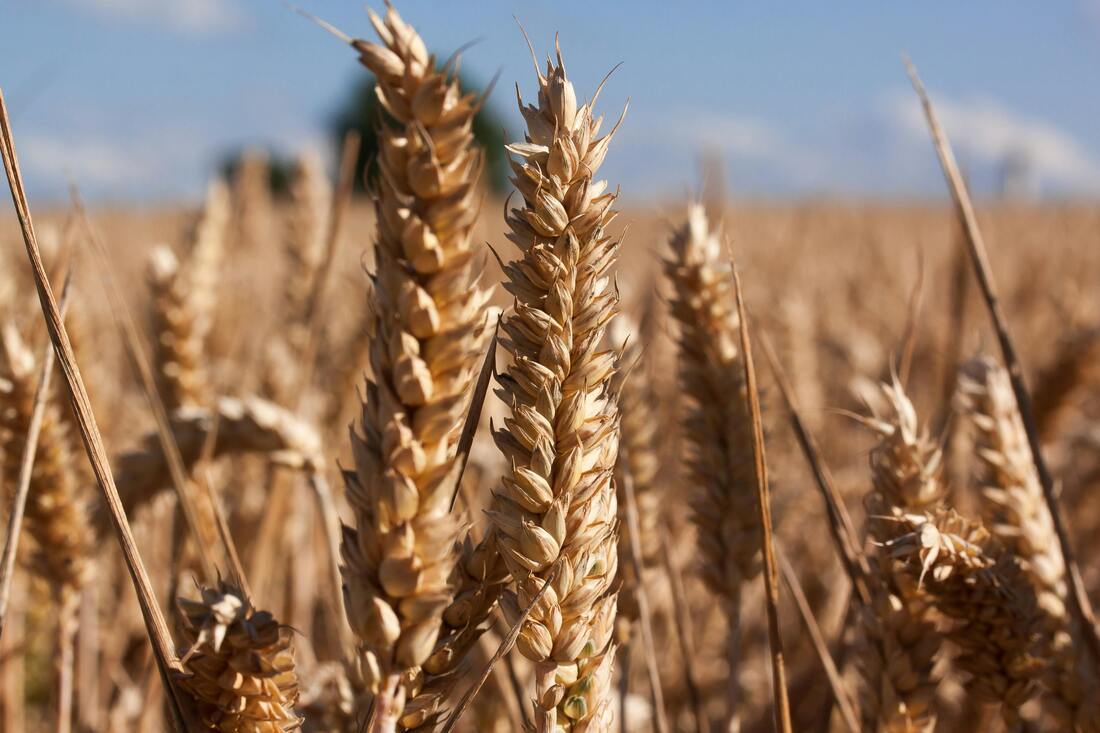
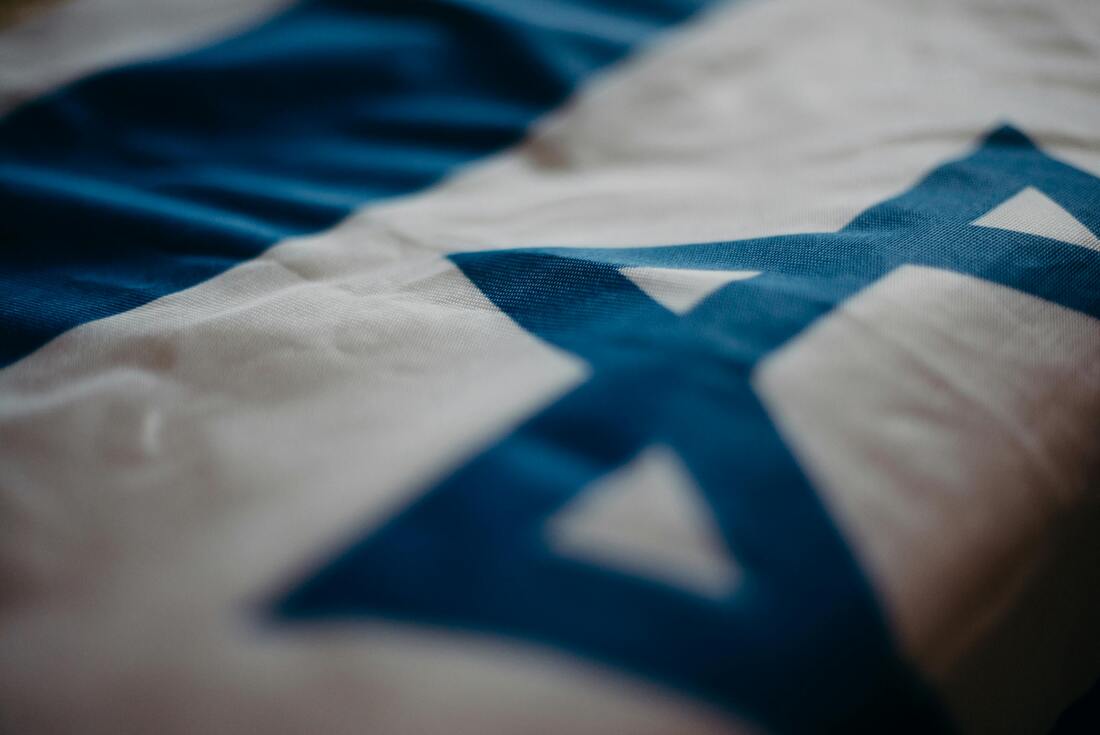
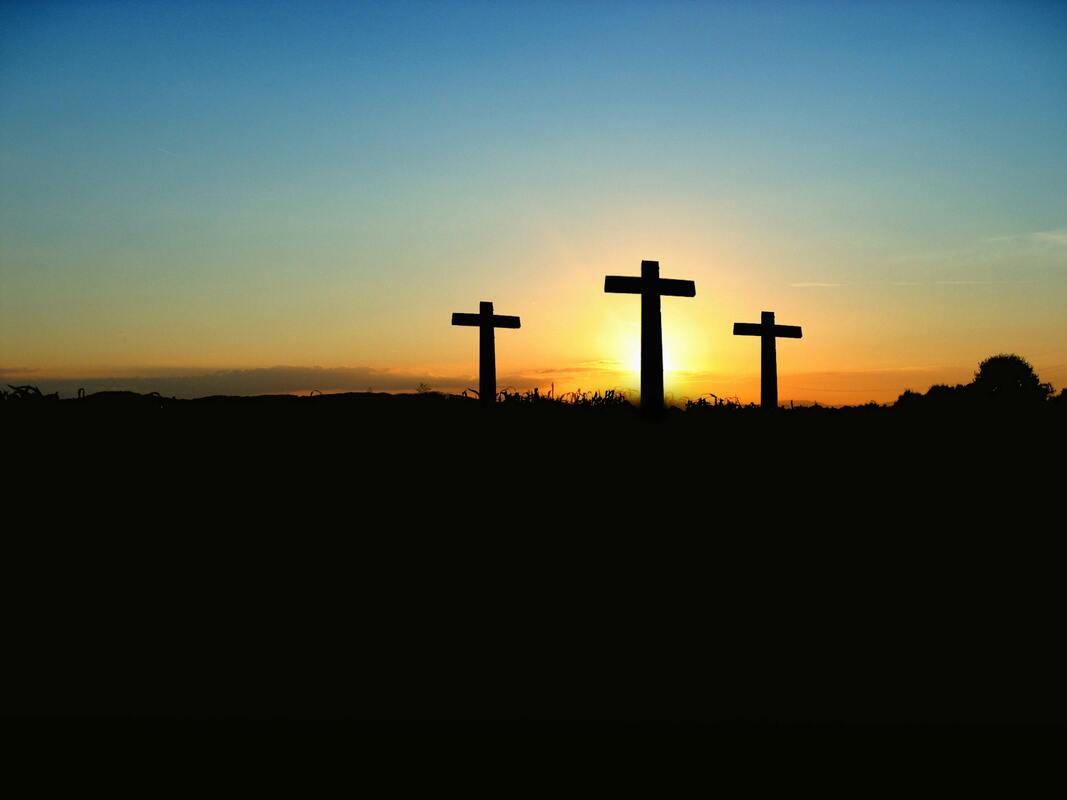

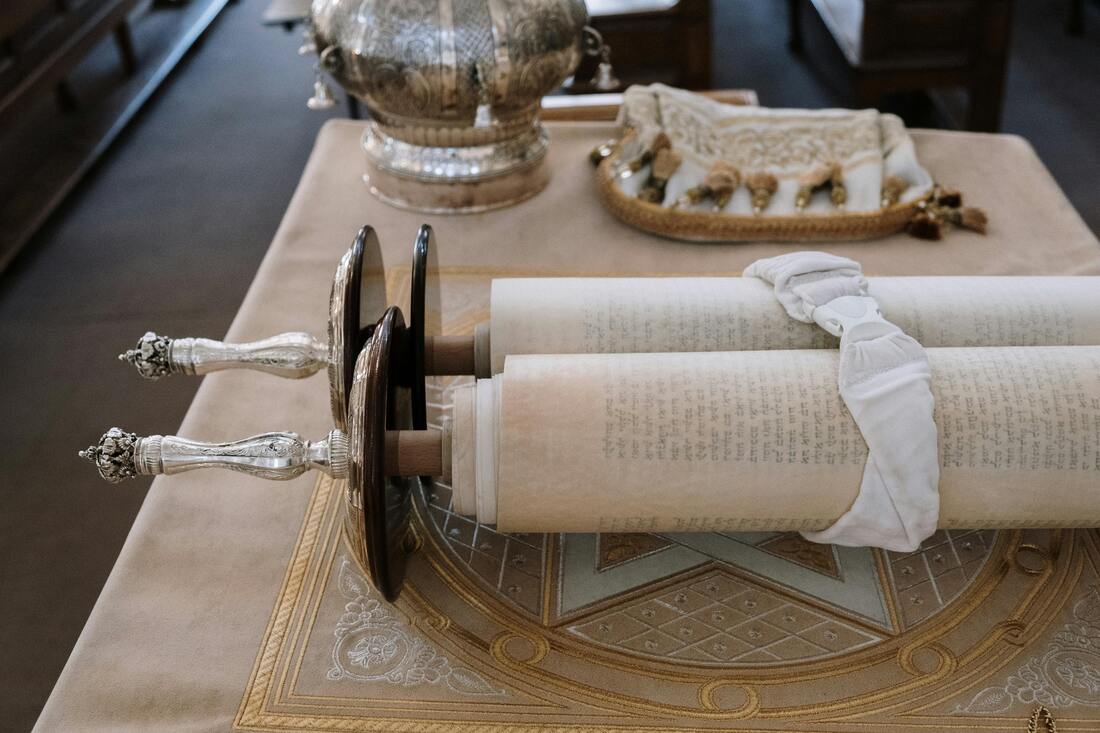


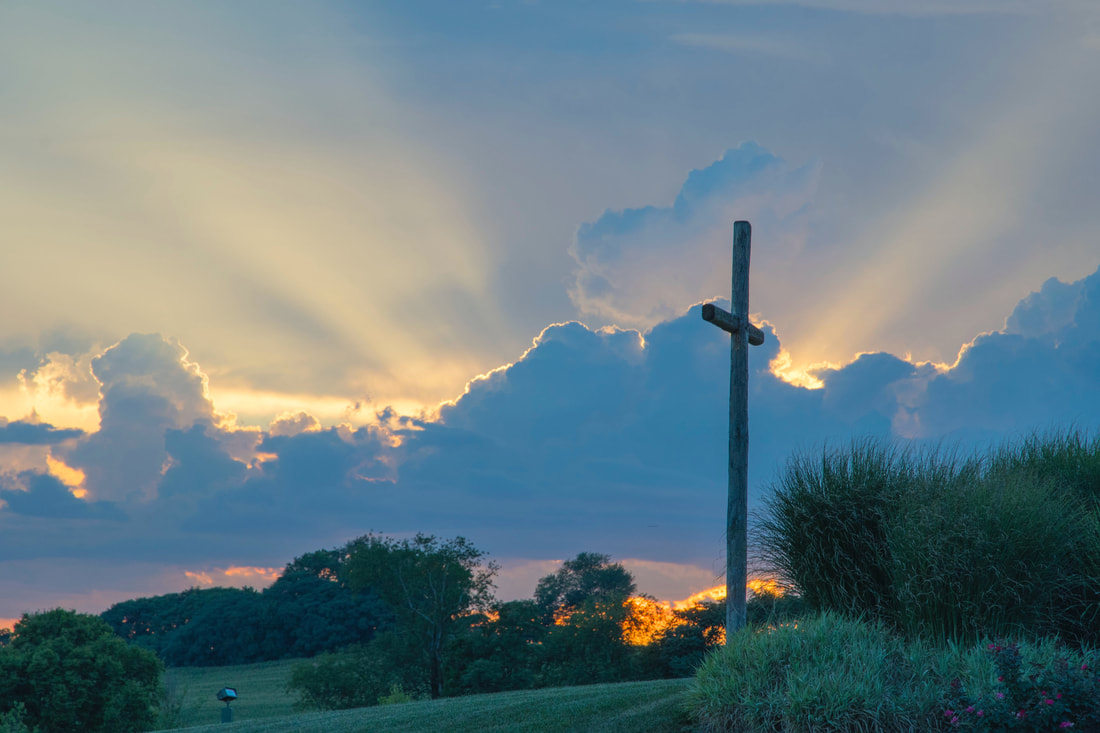
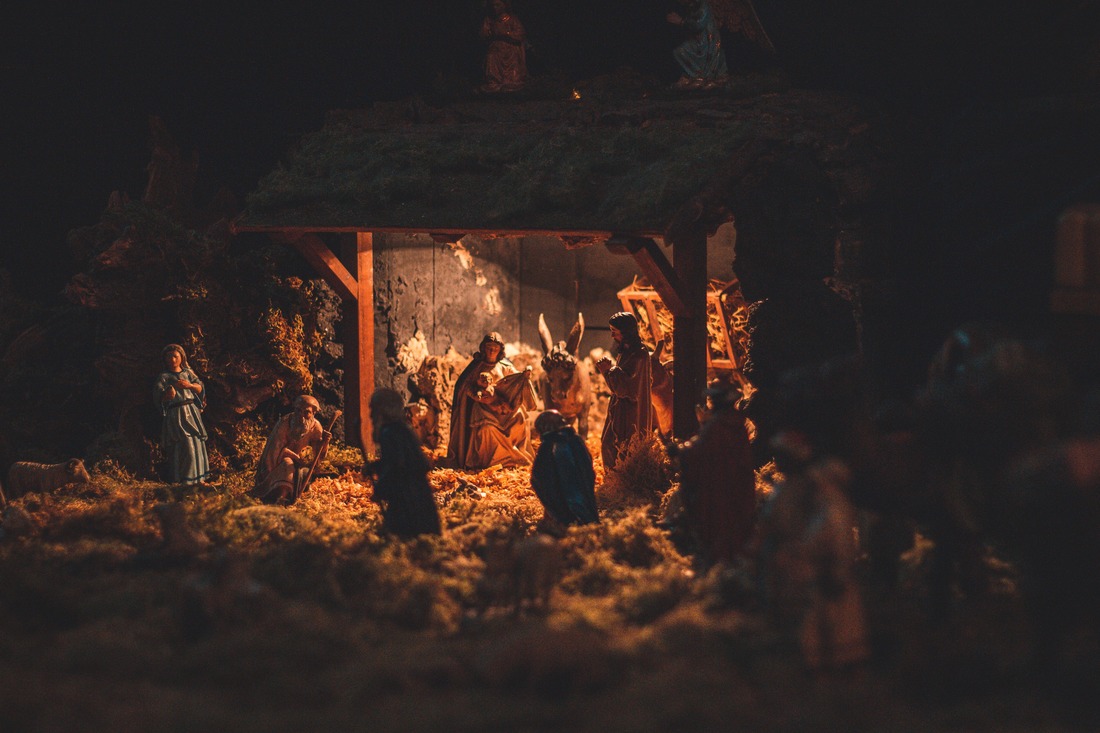
 RSS Feed
RSS Feed